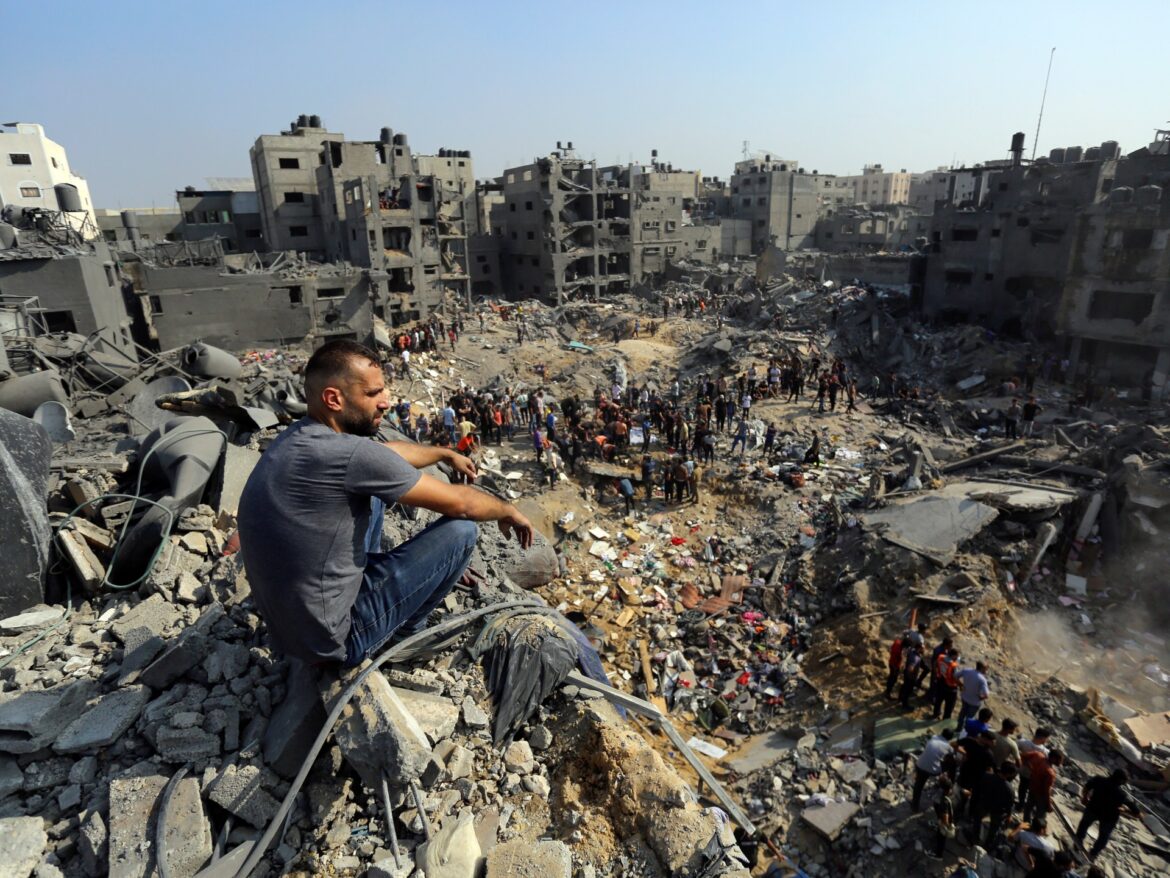The Office of the United Nations High Commissioner for Human Rights says the Israeli airstrike on the Jabalia refugee camp in Gaza could amount to a war crime, amid growing horror at the growing numbers civilians killed during this war which has lasted for almost a month.
The camp, located in a densely populated part of Gaza City, was hit by a missile on Tuesday, leaving a giant crater in the middle of the bombed buildings before being targeted by a second bombardment on Wednesday.
The Gaza government media office said at least 195 people had been confirmed dead and more than 100 were believed to be missing under the rubble. Some 777 people were injured in these attacks, the press release added.
Israel said the attack targeted a Hamas commander.
“Given the high number of civilian casualties (and) the scale of destruction following the Israeli airstrikes on the Jabalia refugee camp, we seriously fear that these are disproportionate attacks that could constitute crimes of war,” the United Nations High Commissioner for Refugees said. Human Rights wrote about
The comments follow a wave of condemnation from the United Nations, where officials expressed shock and horror at the attacks on Jabalia, Gaza’s largest refugee camp.
Secretary-General Antonio Guterres “is dismayed by the escalation of violence in Gaza,” said his spokesperson Stéphane Dujarric.
This includes “the killing of Palestinians, including women and children, during Israeli airstrikes in residential areas of the densely populated Jabalia refugee camp,” Dujarric added.
UNICEF, the United Nations children’s agency, called the attacks “horrific and appalling.”
In said it was too early to know how many children were among the dead in Jabalia, but noted that more than 3,500 children had been killed since October 7 when Hamas attacked Israel, killing 1,400 people and taking 200 prisoners, and Israel began its bombing of Israel. Gaza in response.
Gaza, controlled by Hamas since 2006, is home to around 2.3 million people who have lived under blockade for 17 years.
“This is just the latest atrocity to hit the people of Gaza, where the fighting has entered an even more terrifying phase, with increasingly dire humanitarian consequences,” said Martin Griffiths, UN humanitarian chief. , in a press release.
He said: “The world seems unable or unwilling to act,” adding that “this cannot continue. We need radical change.”
Israel said Jabalia was attacked due to a “vast” tunnel complex at the site and that “many Hamas terrorists” were killed, including local commander Ibrahim Biari, whom Israel accused of being involved. in the attack of October 7.
Hamas said seven captives, including three foreigners, were killed in the attack.
Dujarric said the secretary general reiterated that all parties “must respect international humanitarian law, including the principles of distinction, proportionality and precaution.”
He also called on them to “end this shocking violence, pain and suffering.”
The attacks on Jabalia took place as the Rafah crossing on the southern border with Egypt was finally open, but only for the most seriously injured and some foreign nationals.
The opening of the crossing also allowed Philippe Lazzarini, the head of the United Nations agency working to help Palestinian refugees, to enter Gaza for the first time since the conflict began.
He met Palestinian refugees in a school.
He later described the visit as “one of the saddest days” of his more than 30-year humanitarian career. He has previously worked in countries including Iraq, Somalia and Rwanda.
“The levels of distress and unsanitary living conditions were beyond belief,” Lazzarini said in a statement. “Everyone was just asking for water and food.”
Lazzarini heads the United Nations Relief and Works Agency for Palestinian Refugees (UNRWA) and is the highest-ranking UN official allowed into Gaza since October 7. More than 70 agency staff have been killed since the bombing began, and Lazzarini paid tribute to those still trying to meet the needs of Gaza’s people, describing them as a “ray of light.”
He reiterated his call for more international aid and a ceasefire.
“The current humanitarian response is far insufficient and does not meet the enormous needs of the people of Gaza,” he said, highlighting the lack of fuel and its “devastating impact on hospitals, bakeries, water plants and our operations”. A humanitarian ceasefire is long overdue. Without it, more people will be killed, those who are alive will suffer further losses, and the once vibrant society will be in mourning forever.”



